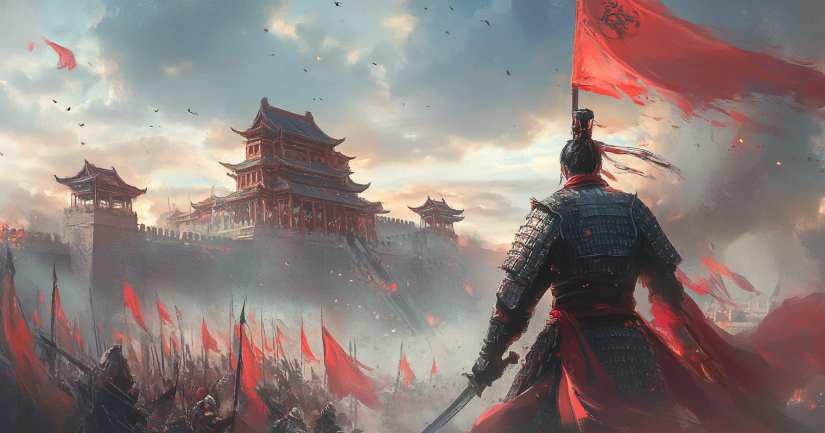
Dive into centuries of remarkable events, from emperors to revolutions, in the Chinese History Quiz, Test Your Knowledge of China’s Dynasties, Revolutions, and Cultural Legacies. The Chinese History Quiz challenges your understanding of one of the world’s oldest and most influential civilizations. With a history spanning over 5,000 years, China has experienced the rise and fall of powerful dynasties, groundbreaking inventions, and political revolutions that shaped the modern world. From the construction of the Great Wall to the founding of the People’s Republic of China, this quiz will test your knowledge of key events, historical figures, and cultural legacies.
China’s imperial history began with the legendary Xia Dynasty (c. 2070–1600 BCE), which, according to historical records, marked the transition from tribal rule to centralized governance. The Shang Dynasty (1600–1046 BCE) introduced the earliest known Chinese writing system, inscribed on oracle bones for divination. The Zhou Dynasty (1046–256 BCE) developed the Mandate of Heaven, a political doctrine stating that rulers must govern justly to maintain divine approval.
Take a walk through time with the monumental Great Wall of China Quiz, or travel even further back with the engaging Ancient China Quiz.
Face the Chinese History Quiz Challenge
The Rise and Fall of China’s Great Dynasties
The Qin Dynasty (221–206 BCE), though short-lived, unified China under Qin Shi Huang, standardizing currency, language, and laws while initiating the Great Wall’s construction. The Han Dynasty (206 BCE–220 CE) expanded China’s influence through the Silk Road, facilitating trade with the Roman Empire and beyond. Later, the Tang (618–907 CE) and Song (960–1279 CE) Dynasties ushered in periods of artistic, scientific, and economic advancements. The Ming (1368–1644 CE) and Qing (1644–1912 CE) Dynasties saw both global exploration and internal strife, with the latter ending over 2,000 years of imperial rule.
The Impact of Chinese Inventions and Cultural Achievements
China’s contributions to world civilization include some of the most important inventions in history:
- Paper: Invented during the Han Dynasty, revolutionizing record-keeping and literature.
- Printing: Movable-type printing emerged in the Song Dynasty, enabling mass production of texts.
- Gunpowder: First used in fireworks before transforming global warfare.
- The Compass: Essential for navigation, allowing China’s fleets to explore the world.
Beyond technology, China’s philosophical and literary traditions influenced governance, ethics, and culture. Confucius (551–479 BCE) emphasized morality, education, and social harmony, while Daoism and Buddhism shaped spiritual life. Landmark texts such as The Art of War by Sun Tzu and Journey to the West continue to inspire scholars worldwide.
The Opium Wars and China’s Century of Humiliation
In the 19th century, China faced external pressures from Western imperial powers. The First (1839–1842) and Second Opium Wars (1856–1860) resulted in humiliating defeats, forcing China to sign unequal treaties that ceded Hong Kong to Britain and opened ports to foreign trade. The Boxer Rebellion (1899–1901) sought to expel foreign influence but led to further international intervention. These events marked the beginning of what historians call China’s “Century of Humiliation.”
The Fall of Imperial China and the Rise of a Republic
The Xinhai Revolution (1911) led to the overthrow of the Qing Dynasty, ending over 2,000 years of imperial rule. Sun Yat-sen, a key revolutionary leader, became the first president of the Republic of China (ROC). However, political instability followed, leading to a prolonged struggle between Nationalists (Kuomintang, KMT) and Communists (CCP). This Chinese History Quiz will teach you this and more.
During World War II, China suffered devastating losses in the Second Sino-Japanese War (1937–1945), which merged into the global conflict. After Japan’s defeat, the Chinese Civil War (1945–1949) resumed, resulting in a Communist victory led by Mao Zedong. In 1949, the People’s Republic of China (PRC) was established, while the Nationalists retreated to Taiwan, where they continued to claim legitimacy as China’s government.
Modern China’s Rise as a Global Power
Under Mao Zedong’s rule (1949–1976), China underwent radical transformations, including the Great Leap Forward, which aimed at rapid industrialization but led to famine, and the Cultural Revolution, which sought to eliminate traditional and capitalist influences. After Mao’s death, Deng Xiaoping’s economic reforms (1978–1997) shifted China towards a market-driven economy, leading to unprecedented growth.
Today, China stands as the world’s second-largest economy, a leader in technology, trade, and global diplomacy. Major cities like Beijing, Shanghai, and Shenzhen showcase China’s rapid modernization, while initiatives like the Belt and Road Initiative (BRI) expand its influence across Asia, Africa, and beyond.
How Well Do You Know Chinese History?
China’s history spans millennia, shaping global culture, innovation, and politics. Whether you admire the legacies of China’s emperors, the resilience of its people, or the nation’s rise on the world stage, this quiz will challenge your knowledge. Take the Chinese History Quiz and explore the remarkable past of this great civilization!
China Quizzes – Explore the Wonders …
